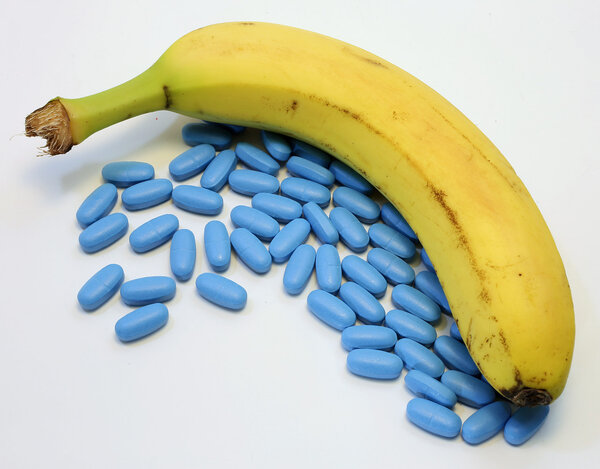Premature ejaculation is the most common disease among sexual dysfunctions. Many men who suffer from premature ejaculation avoid medical treatment, hoping that premature ejaculation will heal on its own.
Actually, this is wrong. No matter what disease you suffer from, you should go to the hospital for diagnosis and treatment in time. The earlier treatment of most diseases is better, the same is true for the treatment of premature ejaculation.
Today I will introduce to you how to treat premature ejaculation. However, before that, let’s take a closer look at the definition of premature ejaculation.

What is Premature Ejaculation?
Currently, the definition of premature ejaculation is still controversial. In 2014, the International Society of Sexual Medicine divided premature ejaculation into primary premature ejaculation and secondary premature ejaculation.
Primary premature ejaculation refers to ejaculation after regular vaginal insertion for about one minute starting from the first sexual intercourse. Secondary premature ejaculation means that the ejaculation latency period is significantly shortened, and ejaculation usually occurs within three minutes.
No matter what kind of premature ejaculation, the patient’s ability to control ejaculation is very poor, and he or she is always or almost always unable to delay ejaculation, causing adverse effects on the patient’s body and mind.
At present, there are four main ways to treat premature ejaculation: psychological treatment, behavioral treatment, drug treatment and surgical treatment.
Among them, drug treatment is a treatment method that is easier for patients with premature ejaculation and is also the most commonly used treatment method in clinical practice.
Symptoms of Premature Ejaculation
Including sexual intercourse being too short, inability to control ejaculation, lack of orgasm, excessive penile sensitivity, anxiety or stress, it is recommended to seek professional treatment from a doctor.
1. Short Sexual Intercourse Time
Premature ejaculation refers to the inability of men to control the time of ejaculation during intercourse, resulting in intercourse that is too short. This may be due to abnormal neurotransmission between the brain and spinal cord, causing premature excitement of the ejaculation center.
2. Unable to Control Ejaculation
Due to increased local sensitivity of the glans or excessive excitement of the cerebral cortex nerves, rapid ejaculation may occur after the ejaculation center is stimulated. It usually occurs during sexual intercourse and is characterized by a significantly shortened ejaculation time, even before penetration.
3. Lack of Orgasm
Premature ejaculation may lead to decreased sexual satisfaction, which in turn affects the likelihood of orgasm for both parties. This condition is more common in patients with persistent premature ejaculation, as frequent experiences of failure can reduce sexual desire and anticipation.
4. Penis Hypersensitivity
When men have primary premature ejaculation, the density of nerve distribution on the dorsal side of their penis is higher, so the sensitivity of the penis will be relatively higher. This sensitivity may lead to a lowered ejaculation threshold, triggering premature ejaculation.
5. Anxiety or Stress
Some patients suffer from premature ejaculation due to long-term mental stress, anxiety and other psychological factors, which may be accompanied by feelings of anxiety or stress. These emotions may exacerbate premature ejaculation symptoms through effects on the autonomic nervous system.
For premature ejaculation, physical examination, laboratory testing and psychological counseling are recommended.
Treatment measures include medications such as dapoxetine hydrochloride tablets, clomipramine hydrochloride tablets and other antidepressants, as well as behavioral therapy such as the stop-and-go technique.
Patients should maintain good living habits to avoid excessive fatigue, and at the same time adjust their mentality to reduce anxiety, which can help improve symptoms.
Causes of Premature Ejaculation
Central nervous system dysfunction, local hypersensitivity of the glans penis, prostatitis, urethritis, psychological factors, etc. These factors may lead to damage to the ejaculation control mechanism.
It is recommended that patients seek medical treatment promptly for targeted treatment.
- Central nervous system dysfunction. Central nervous system dysfunction leads to a weakening of the cerebral cortex’s control over ejaculation, which in turn causes premature ejaculation.
- Sensitive penis. Sensitive penis may lower the ejaculation threshold, leading to premature ejaculation.
- Prostatitis. Prostatitis can cause congestion and edema of the prostate, which can compress peripheral nerves and affect ejaculation time.
- Urethritis. Urethritis can cause an inflammatory reaction in the urethral mucosa, increase urethral sensitivity, and easily induce premature ejaculation.
- Psychological. Psychological factors include tension, anxiety, stress, etc. These emotions can affect the brain’s control of ejaculation, leading to premature ejaculation.
It is recommended that patients undergo regular physical examinations to monitor the health of their reproductive systems. At the same time, pay attention to maintaining good living habits, such as regular work and rest, balanced diet, moderate exercise, etc., to promote good health.
Premature Ejaculation Treatments
Treatments for premature ejaculation include behavioral therapy, antidepressants, sedatives, hormone therapy, and sexual function modifiers. If symptoms persist or worsen, patients are advised to seek medical attention promptly.
1. Behavioral Therapy
Behavioral therapy usually involves psychological counseling, training, and exercises designed to help patients control the timing of ejaculation.
This method helps to change the patient’s thinking and behavioral habits, reduce anxiety and stress, and thereby prolong ejaculation time.
2. Antidepressants
Antidepressants such as selective serotonin reuptake inhibitors (SSRIs) relieve mood disorders and improve sexual function by regulating neurotransmitter balance.
SSRIs can increase the concentration of serotonin in the central nervous system, thereby reducing the brain’s sensitivity to sexual stimulation and prolonging ejaculation. Used to treat premature ejaculation caused by psychological factors.
3. Sedatives
Sedatives such as benzodiazepines can be used to reduce premature ejaculation caused by stress and anxiety.
This type of drug has a central inhibitory effect, can stabilize nerve cell membrane potential, reduce excitatory synaptic transmission, and thereby prolong ejaculation latency.
4. Hormone Treatment
Hormone therapy may involve the use of exogenous androgen replacement therapy or other means of regulating hormone levels in the body.
Increasing androgen levels in the body help increase erection hardness and prolong ejaculation control. It is suitable for some patients with premature ejaculation caused by endocrine reasons.
5. Sexual Function Regulator
Sexual function regulators such as PDE5 inhibitors (such as sildenafil) should be taken according to the time specified in the instructions.
PDE5 inhibitors can increase the concentration of cGMP in the corpus cavernosum of the penis, relax smooth muscles, increase blood inflow, promote penile erection and prolong ejaculation time.
Medication is Key
Drug treatment for premature ejaculation is divided into oral drug treatment and topical drug treatment, among which oral drugs are the main way to treat premature ejaculation clinically.
Next, let’s take a look at common treatment drugs.

- Selective serotonin reuptake inhibitors (SSRIs). SSRIs are the most commonly used drugs to treat premature ejaculation. These drugs mainly include dapoxetine, fluoxetine, paroxetine, sertraline, etc. Dapoxetine is a drug approved for the treatment of premature ejaculation. Dapoxetine inhibits serotonin reabsorption and prolongs the latency of male ejaculation.
- PDE5 inhibitors. The main drug used for PDE5 inhibitors to treat premature ejaculation is sildenafil. For patients with erectile dysfunction, PDE5 inhibitors combined with SSRIs can improve patients’ sexual life satisfaction.
- Alpha blockers. Alpha-receptor blockers can block the effects of the sympathetic nervous system and prolong the latency of ejaculation. Common alpha-receptor blockers include tamsulosin, terazosin, doxazosin, etc.
Before considering any kind of treatment, underlying pathological factors, such as prostatitis or diabetic neuropathy, should first be ruled out.
At the same time, it is recommended that patients undergo regular physical examinations and monitor their health status so that relevant problems can be discovered and dealt with in a timely manner.
One Final Point About PE
If you ejaculate earlier than expected during most sexual activities, please consult medical staff. It is normal to be shy about discussing sexual health issues. But don’t avoid consulting medical staff for this. Premature ejaculation is a common and treatable condition.
Talking to your partner and involving them in your conversation with a health expert can also be helpful. Most people with premature ejaculation can receive help, which helps develop and maintain intimate relationships.
It is important to remember that ejaculation problems are very common and there is nothing to be embarrassed about.
